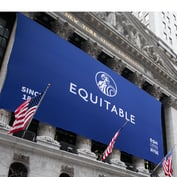The American Council of Life Insurers (ACLI) says insurance regulators should evaluate insurer investments in working capital finance notes using the same rules that apply to commonly used short-term investments.
Michael Monahan, accounting policy director at the ACLI, Washington, has discussed the working capital notes in a comment letter sent to the Statutory Accounting Principles Working Group on the Valuation of Securities Task Force at the National Association of Insurance Commissioners (NAIC), Kansas City, Mo.
A working capital finance note helps a large vendor cope with the gap between when a company acknowledges that it must pay an invoice and when it actually pays the invoice.
Banks once dominated the sector, but insurers now have a chance to participate because of banks’ efforts to reduce the size of their balance sheets, note marketers say.
Insurers have asked the NAIC what it thinks about the working capital note programs.
Note marketers say the notes give insurers relatively high investment returns in exchange for risk levels that are comparable to the risk levels insurers would face if they invested in the program sponsors’ short-term corporate bonds.
NAIC staff members have suggested the program investors may face default risk and billing problem risk.








 June 29, 2011 at 08:00 PM
June 29, 2011 at 08:00 PM









